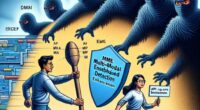Exploring Generative AI’s Role in Revolutionizing E-Discovery: Insights from Redgrave Data’s Experts
The legal field has long leveraged artificial intelligence (AI) to enhance the efficiency and effectiveness of electronic discovery (e-discovery). For years, technology-assisted review (TAR) has been at the forefront, utilizing AI’s machine learning capabilities to sift through extensive document collections in search of relevant materials. However, a fascinating shift is beginning to emerge, with some pioneers experimenting with generative AI as a potentially groundbreaking alternative or complement to traditional TAR frameworks.
But what exactly does this shift imply for the practice of document review in e-discovery? Is generative AI poised to overhaul the conventional TAR approach, serve as its augmentation, or is its role something entirely different? Moreover, as generative AI continues to evolve at a breakneck pace, what other innovative applications might it find in the discovery process?
In a riveting episode of LawNext, host Bob Ambrogi delves deep into these questions by inviting an esteemed panel of experts from Redgrave Data. Redgrave Data, a consultancy known for its prowess in e-discovery and data science, has been at the vanguard of exploring how generative AI can be harnessed to transform e-discovery practices.
Bob’s guests on LawNext offer a wealth of knowledge derived from their extensive experience as computer and data scientists. In their discussion, they cover a range of topics, including the potential advantages and challenges of incorporating generative AI into e-discovery, how it compares and contrasts with existing TAR methodologies, and speculative insights into future developments.
The move towards integrating generative AI into e-discovery is not just about adopting new technology; it’s about reimagining how legal professionals approach the discovery process. Generative AI presents opportunities to not only accelerate document review but also enhance the precision of identifying relevant documents amidst vast data troves. However, this does not come without its set of challenges, such as ensuring the reliability of the AI-generated results and addressing the ethical considerations inherent in deploying AI in legal contexts.
The episode also touches upon how generative AI could pave the way for new discovery techniques, beyond merely assisting in document review. Its capability to generate summaries, draft responses, and even predict future legal outcomes presents a frontier ripe with possibilities for legal practices. As these technologies mature, their integration into e-discovery could redefine professional roles, workflows, and strategies, propelling the field towards an era where technology and legal expertise converge more seamlessly than ever before.
As we stand on the cusp of potentially groundbreaking shifts in e-discovery practices, LawNext‘s discussion with Redgrave Data’s scientists serves as a critical primer for legal professionals seeking to understand the implications of generative AI’s rise. More importantly, it offers a glimpse into a future where the confluence of legal acumen and advanced technology could revolutionize how justice is pursued, one document at a time.
This exploration of generative AI’s burgeoning role in e-discovery owes its depth and insight to the generous sponsorship that makes episodes like this possible. Through their support, LawNext continues to bring to light the most cutting-edge topics and discussions in the legal tech space, encouraging professionals across the industry to stay informed and forward-thinking.









